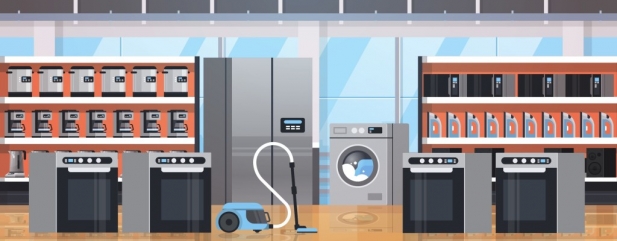Archived article
Please note that tax, investment, pension and ISA rules can change and the information and any views contained in this article may now be inaccurate.
Sectors seeing increased demand as a result of coronavirus

The extent of the economic fallout from consumer self-isolation is becoming palpable with share prices in the retail, leisure and hospitality sectors falling sharply. However the enforced change in behaviour is having a positive impact in some areas.
Dixons Carphone (DC.), AO World (AO.) and John Lewis have all talked about seeing an increase in demand for electrical goods including sales of freezers, small domestic appliances and laptops as customers prepare to work for home and/or staying indoors for a long period.
Increasing use of video conferencing services may result in some people needing to upgrade their broadband services to cope with the extra data load.
BT (BT.A) said it would be able to cope despite worries of residential bottlenecks causing blackouts or slower speeds for users.
Last week analysts at HSBC argued that the coronavirus could end the ‘curse on telcos’ by underlining their defensive nature, based on steady subscription revenue and growing data demand. However, numerous voice networks in the UK went down on 17 March as the telcos struggled to handle increased demand.
Broker Jefferies noted in a recent report that it expects the gaming industry to see a boost to revenues from increased time spent online as well as attracting new users as a result of enforced home isolation.
However, this view was tempered by the bleaker outlook for jobs and consumer spending should the global economy see a recession in the next few months.
Cinema chains are starting to close their doors temporarily which could drive increased demand for streaming services from US-listed stocks Netflix, Disney and Amazon.
Another consequence of working from home is increased electricity, gas and water consumption. If people follow the protocols of washing hands 20 times a day, and given that smart metering has become widespread, then water bills should see a spike for those on a meter.
In addition, heating bills will be higher as households use multiple computers and televisions for hours during the day when they would otherwise be idle.
National Grid (NG.), SSE (SSE), United Utilities (UU.) and Severn Trent (SVT) have seen their share prices outperform the market by around 15% over the last month, with SSE seeing its shares up 3% in absolute terms. Soap manufacturer PZ Cussons (PZC) has also seen its shares outperform the market by 19% over the last month.
Some of these emerging trends will probably peter out once the emergency measures are withdrawn, while some, like hand sanitation and working from home, will become more ingrained and ‘sticky’, providing a more sustainable boost.
Important information:
These articles are provided by Shares magazine which is published by AJ Bell Media, a part of AJ Bell. Shares is not written by AJ Bell.
Shares is provided for your general information and use and is not a personal recommendation to invest. It is not intended to be relied upon by you in making or not making any investment decisions. The investments referred to in these articles will not be suitable for all investors. If in doubt please seek appropriate independent financial advice.
Investors acting on the information in these articles do so at their own risk and AJ Bell Media and its staff do not accept liability for losses suffered by investors as a result of their investment decisions.

 magazine
magazine








